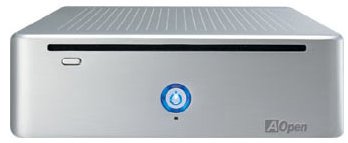This is a point-by-point discussion of the LA Times article found here.
TURIN, Italy — As Olympic TV ratings sagged over the last two weeks and viewers switched channels from the Games to “American Idol,” NBC got one piece of very good news.
The network’s website for the 2006 Turin Games, NBCOlympics.com, recorded 338 million page views through Saturday, more than doubling the number of hits from the 2002 Salt Lake City Games.
And that, some experts said, was promising not only for broadcasters but for the entire Olympic movement. “We are clearly in a new era,” said David Carter, executive director of the USC Sports Business Institute. “We have to see a new model for how the Olympics are delivered.”
The Internet could lead straight to a group that broadcasters and the International Olympic Committee covet most — young fans. Enmeshed in a world of text messaging, chat rooms and instant news, this demographic appears to be turned off by nightly packaged programming.
Actually, everyone was turned off by nightly packaged programming. This isn’t some reaction of the hip youth against old fogies, it’s the reaction of a country with a lot of channels to choose from against a ludicrous idea that people would watch 4 hours of olympics every night for two weeks.
For the last summer olympics I tried to record sports I wanted to see, but they were lost in gigantic 3 or 4 hour blocks that often didn’t even contain the sports they claimed would be shown. When I saw this year that it was the same thing, I didn’t even bother scheduling recordings.
With the time difference in Italy, that meant waiting around to watch events that had finished hours earlier.
“They’re saying, ‘What do you mean I can’t see it now?’ ” said Paul Swangard, managing director of the Warsaw Sports Marketing Center at the University of Oregon.
Not only are young consumers hungry for quick information, experts said, they are accustomed to paying for it.
I thought the internet was full of blood-sucking pirates who wouldn’t pay for anything?
Unlike their parents, who grew up watching over-the-air television and listening to the radio, the newer generation is comfortable with monthly cable bills and pay-per-view and spending money to download music.
In an odd way, putting more of the Games online with streaming video would hark back to the “Triplecast,” an old broadcasting experiment gone awry.
At the 1992 Barcelona Games, NBC offered a subscription package that gave viewers live and greatly expanded coverage. There weren’t many takers and the “Triplecast” flopped, considered something of a joke within the industry.
Yet, more than a decade later, the model might be updated.
“The notion of what it represented is not a bad idea in 2006,” Swangard said. “This idea that someone is willing to pay for the Olympics when they want it, how they want it.”
The tricky part will be figuring out how to package myriad events and how to charge for them.
NBC, I’ll save you millions of dollars and tell you the answer: Set up a TV schedule that lists exactly when events occur so that a Tivo or other recording device can record only the sports I want to watch. Then upload every single event as separate clips online, so I can watch everything.
Should viewers have to subscribe to the entire Games? Might they be able to order specific events or days? And how can the IOC protect itself against piracy in a wide-open medium?
Another free answer: a one-time fee for access to everything. It should cost 10$. After I pay my 10$ I can download and stream every single clip of every athlete in every event. Piracy will be a non-issue if you make it work on all three major platforms, provide decent resolution, and make it painless to search for whatever I want. Customizable, authenticated RSS feeds with enclosures would mean I could download just Jamaican Bobsledders, or only Sasha Cohen. This is all doable right now.
“It’s an incredible challenge and an incredible burden,” Carter said.
In light of television ratings the last two weeks, it might be a challenge worth facing.
“For generations, the media has supplied [the Olympics] on their own terms,” Carter said. “Now consumers are demanding how they want it, and it’s about time the industry woke up.”
The crazy thing about this discussion is that it’s only happening after the Olympics, after the poor ratings that everyone predicted. Everyone knew the Olympics were going to bomb, and they did. How bad are the ratings going to have to get until NBC decides to try something different? Or will we have to wait until someone else buys the Olympics rights before anything changes?



